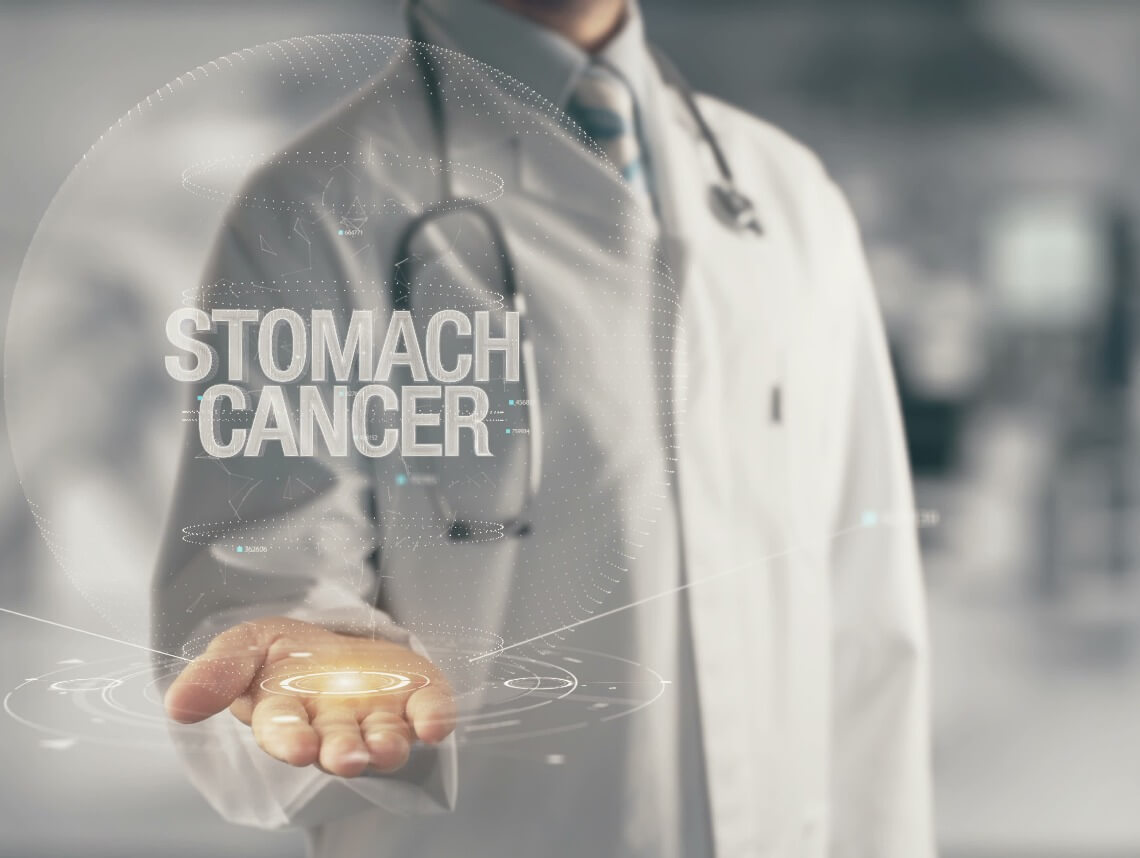Cancer- Treatment
Stomach Cancer Treatment: Surgery, Chemotherapy, Radiation & Biologicals
In this article, you will learn about the different types of treatments doctors use for people diagnosed with stomach cancer.
Summary: 60 Second Read
Overview
This article explains the types of treatments that are the standard of care for stomach cancer. “Standard of care” means the best treatments known. When making treatment plan decisions, you are encouraged to consider clinical trials as an option. A clinical trial is a research study that tests a new approach to treatment. Doctors want to learn whether the new treatment is safe, effective, and possibly better than the standard treatment. Clinical trials can test a new drug, a new combination of standard treatments, or new doses of standard drugs or other treatments. Clinical trials are an option to consider for treatment and care for all stages of cancer. Your doctor can help you consider all your treatment options.
Stomach Cancer Treatment
The choice of treatment depends mainly on the size and location of the tumor, the stage of disease, and your general health.
Treatment for stomach cancer may involve surgery, chemotherapy, or radiation therapy. You'll probably receive more than one type of treatment. For example, chemotherapy may be given before or after surgery. It's often given at the same time as radiation therapy.
Your health care team can describe your treatment choices, the expected results, and the possible side effects. Because cancer therapy often damages healthy cells and tissues, side effects are common. Before treatment starts, ask your health care team about possible side effects, how to prevent or reduce these effects, and how treatment may change your normal activities. You and your health care team can work together to make a treatment plan that meets your needs.
Surgery
The type of surgery for stomach cancer depends mainly on where the cancer is located. The surgeon may remove the whole stomach or only the part that has the cancer.
You and your surgeon can talk about the types of surgery and which may be right for you:
- Partial (subtotal) gastrectomy for tumors at the lower part of the stomach: The surgeon removes the lower part of the stomach with the cancer. The surgeon attaches the remaining part of the stomach to the intestine. Nearby lymph nodes and other tissues may also be removed.
- Total gastrectomy for tumors at the upper part of the stomach: The surgeon removes the entire stomach, nearby lymph nodes, parts of the esophagus and small intestine, and other tissues near the tumor. Rarely, the spleen also may be removed. The surgeon then connects the esophagus directly to the small intestine.
The time it takes to heal after surgery is different for each person, and you may be in the hospital for a week or longer. You may have pain for the first few days. Medicine can help control your pain. Before surgery, you should discuss the plan for pain relief with your doctor or nurse. After surgery, your doctor can adjust the plan if you need more pain relief.
Many people who have stomach surgery feel tired or weak for a while. Your health care team will watch for signs of bleeding, infection, or other problems that may require treatment.
The surgery can also cause constipation or diarrhea. These symptoms usually can be controlled with diet changes and medicine.
Chemotherapy
Most people with stomach cancer get chemotherapy. Chemotherapy uses drugs to kill cancer cells.
It may be given before or after surgery. After surgery, radiation therapy may be given along with chemotherapy.
The drugs that treat stomach cancer are usually given through a vein (intravenous). You'll probably receive a combination of drugs.
You may receive chemotherapy in an outpatient part of the hospital, at the doctor's office, or at home. Some people need to stay in the hospital during treatment.
Radiation Therapy
Radiation therapy (also called radiotherapy) uses high-energy rays to kill cancer cells. It affects cells only in the part of the body that is treated. Radiation therapy is usually given with chemotherapy to treat stomach cancer.
The radiation comes from a large machine outside the body. You'll go to a hospital or clinic for treatment. Treatments are usually 5 days a week for several weeks.
Side effects depend mainly on the dose and type of radiation. External radiation therapy to the chest and abdomen may cause a sore throat, pain similar to heartburn, or pain in the stomach or the intestine. You may have nausea and diarrhea. Your health care team can give you medicines to prevent or control these problems.
It's common for the skin in the treated area to become red, dry, tender, and itchy.
Know in detail about stomach cancer treatment (purpose, surgery, preparation) here.
If treatment does not work
Recovery from cancer is not always possible. If the cancer cannot be cured or controlled, the disease may be called advanced or terminal.
This diagnosis is stressful, and for many people, advanced cancer is difficult to discuss. However, it is important to have open and honest conversations with your health care team to express your feelings, preferences, and concerns. The health care team has special skills, experience, and knowledge to support patients and their families and is there to help. Making sure a person is physically comfortable, free from pain, and emotionally supported is extremely important.
Book online consultation with our experts







































































































